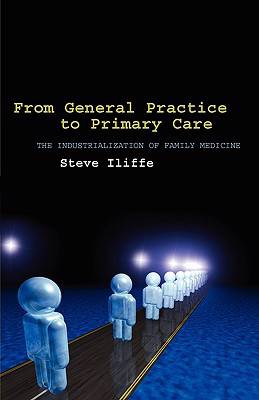
- Retrait gratuit dans votre magasin Club
- 7.000.000 titres dans notre catalogue
- Payer en toute sécurité
- Toujours un magasin près de chez vous
- Retrait gratuit dans votre magasin Club
- 7.000.0000 titres dans notre catalogue
- Payer en toute sécurité
- Toujours un magasin près de chez vous
From General Practice to Primary Care
The industrialization of family medicine
Steve (Professor of Primary Care for Older People, University Co
Livre broché
77,45 €
+ 154 points
Description
Do the many targets, guidelines and governance inherent in modern general practice mean the specialty is becoming increasingly impersonal and mechanised? Is this an advantage or a disadvantage? This book explores this idea, looking at implications for both staff and members of the public.
Spécifications
Parties prenantes
- Auteur(s) :
- Editeur:
Contenu
- Nombre de pages :
- 248
Caractéristiques
- EAN:
- 9780199214501
- Date de parution :
- 14-02-08
- Format:
- Livre broché
- Dimensions :
- 141 mm x 217 mm
- Poids :
- 342 g

Les avis
Nous publions uniquement les avis qui respectent les conditions requises. Consultez nos conditions pour les avis.






